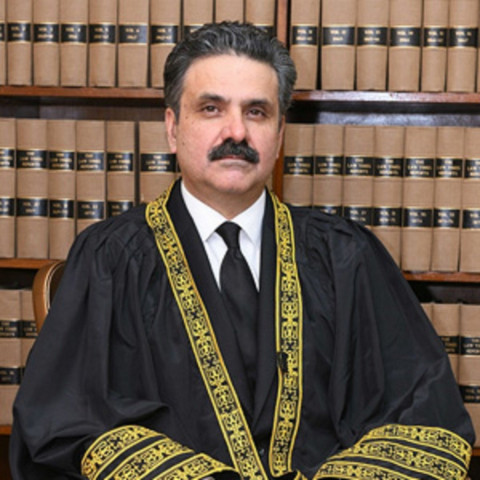Full court overhauls SC rules in silence over 27th Amendment
Session concludes with no reference to the 27th Constitutional Amendment

In a full court meeting of the Supreme Court of Pakistan chaired by Chief Justice Yahya Afridi, the court unanimously approved amendments to the Supreme Court Rules 2025 based on recommendations by a specially constituted committee, the Supreme Court said in an official statement.
The meeting was held in Islamabad on Friday, and the court formally adopted the updated rules. The Supreme Court emphasised that the changes will facilitate better service delivery and make justice more accessible and timely.
The committee, formed under Order I, Rule 1(4) of the Supreme Court Rules 2025, included Justice Shahid Waheed, Justice Irfan Saadat Khan, Justice Naeem Akhtar Afghan, and Justice Aqeel Ahmed Abbasi. Its mandate was to address difficulties encountered during the implementation of the rules.
The court individually appreciated each committee member for their diligent efforts, which included a detailed review of the Supreme Court Rules 1980, preparation of the draft Supreme Court Rules 2025, and examination of suggestions to resolve challenges posed by the rules.
Read: President Zardari signs 27th Constitutional Amendment into law
According to the statement, the updates to the Supreme Court Rules 2025 are aimed at improving service delivery and ensuring affordable and speedy justice.
In addition, the court unanimously approved granting Senior Advocate Supreme Court status to Muhammad Munir Pracha, Advocate Supreme Court of Pakistan, under Order IV, Rule 5 of the Supreme Court Rules 2025.
But ironically, despite letters penned by senior Supreme Court judges, including Justice Mansoor Ali Shah and Justice Athar Minallah—who resigned a day earlier and had called for a full court reference on the 27th Amendment—the court refrained from any mention of the recently passed amendment, which has now become law with the president’s signature.
The 27th Constitutional Amendment
The 27th Constitutional Amendment includes the introduction of a Federal Constitutional Court, which have original jurisdiction in Constitutional disputes between the government and fundamental rights enforcement cases. Pending petitions or appeals in the Supreme Court or its constitutional benches under this jurisdiction are to be transferred to this court.
The amendment also abolishes the suo motu powers of the SC and deletes Articles 184, 186, and 191A. The draft also authorises the president to move a judge from one high court to another based on a recommendation from the Judicial Commission of Pakistan, which is the body that oversees nominations for the country’s higher judiciary.
The new amendment has sparked widespread concern among the judiciary and legal community, with critics arguing that it undermines the independence of the Supreme Court. The controversy had prompted letters from sitting judges, petitions from senior lawyers, and coordinated protests by bar associations, highlighting the deep apprehension over the potential shift in the balance of power between the judiciary and the executive.
Justice Mansoor had urged CJP Afridi to engage the executive regarding the proposed 27th amendment. Likewise, Justice Minallah also suggested CJP Afridi to convene a judicial convention. These two judges resigned in protest on Thursday, after the passage of the 27th Amendment by parliament.




















COMMENTS (1)
Comments are moderated and generally will be posted if they are on-topic and not abusive.
For more information, please see our Comments FAQ